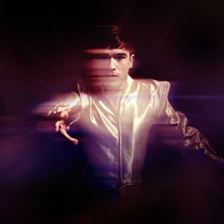On his sophomore album, “Zeros,” Declan McKenna gives his original fans more of the indie rock music that skyrocketed him to popularity to begin with, while also incorporating the influence of classic pop rock legends. The end product is a project that improves over his debut album, and shows McKenna’s development as a young artist.
McKenna is an English singer-songwriter who first came to prominence in 2015 at 16 years old when his first self-released single “Brazil” made headlines for its criticism on the corruption of the global soccer federation FIFA and the controversy surrounding the 2014 FIFA World Cup in Brazil.
After the critical and commercial success of “Brazil,” McKenna released three more singles in 2016 before releasing his highly anticipated debut album, “What Do You Think About the Car?” in 2017. The album received praise from fans and critics alike, marking a strong debut to a promising career for the young artist.
McKenna would then go on to release the single “British Bombs” in August 2019, a song criticizing British foreign policy, before releasing his follow-up album “Zeros” on Sep. 4, 2020.
McKenna begins the album with the track “You Better Believe!!!,” a thundering upbeat rock track the artist has become well known for. The different guitar riffs before each verse add depth to the song and are reminiscent of a Two Door Cinema Club track. The music is complemented by McKenna’s roaring vocals, which range from soft singing at some parts to near screaming at other parts.
Overall, it sounds like McKenna is just having fun, and the backing vocals provide straightforward harmonies that bring the Beatles to mind.
Eventually, the explosiveness fades out and all is left is a simple piano melody transitioning into the next track, “Be an Astronaut.”
From the first listen, it is obvious that “Be an Astronaut” has Elton John written all over it. McKenna pays homage to the British pop rock icon by beginning the track with a haunting piano tune soon joined by ballad-like vocals to begin the first verse. The track picks up its pace in a matter of seconds as it approaches the chorus, featuring McKenna’s swooning vocals.
The song throws in more layers of instrumentation as it progresses, leading to a powerful instrumental interlude halfway through the song before concluding with one final chorus and a guitar solo. At the end, I was in awe and left with the desire to experience the song live.
The following track, “The Key to Life on Earth,” features some of the most interesting production on the entire album. The electronic instrumentation consists mainly of staccato notes with a sort of springing effect behind them, making the song feel like a cheesy 1970s space movie in a good way.
Lyrically, McKenna sings about what it’s like to grow up as a kid in England while also speaking on the differences of kids from different socioeconomic classes. He also provides another catchy chorus, something that McKenna’s fanbase has grown to expect from the artist every time he releases a new single.
While the album overall presents a lot of futuristic, electronic production, each track still manages to bring something new to the table.
The song “Daniel, You’re Still a Child,” features a bassline that beats like a heart and the best electric guitar instrumentation on the entire album, while McKenna’s half-singing, half-speaking vocals help give the track an upbeat, outer space like feeling.
The following track, “Emily,” goes in the completely opposite direction, with the first minute of the song featuring acoustic guitar and orchestral string instruments supporting McKenna’s layered vocals.
As the song progresses, McKenna incorporates more electric instruments without losing that folk-rock feel he was clearly going for. McKenna cites Bob Dylan and Fleetwood Mac as influences for the song, and the similarities are clearly there.
Another highlight of the album is the track “Rapture,” which lyrically is about fearing the current state of the world and the toll it can have on one’s mental state. The chorus is infectious, with McKenna singing the hook in falsetto.
“Rapture in my head / I keep looking up like I’m already dead,” McKenna sings on the chorus. “Rapture, oh my Lord / I’ve been playing catch-up, I’m already bored.”
“Rapture” also showcases more of McKenna’s vocal ability as he shrieks and shouts for the final minute of the song.
McKenna has come a long way since his meteoric rise to the limelight five years ago, and “Zeros” shows how much he has matured as an artist. Mckenna’s influence from classic British rock has ultimately paid off.
McKenna pays tribute to his heroes in style, delivering a product that feels both nostalgic, yet new at the same time. He has crafted an album that the likes of Elton John and Paul McCartney would be proud of, and at this rate, he could one day be held in the same iconic regard as those very same legends.



